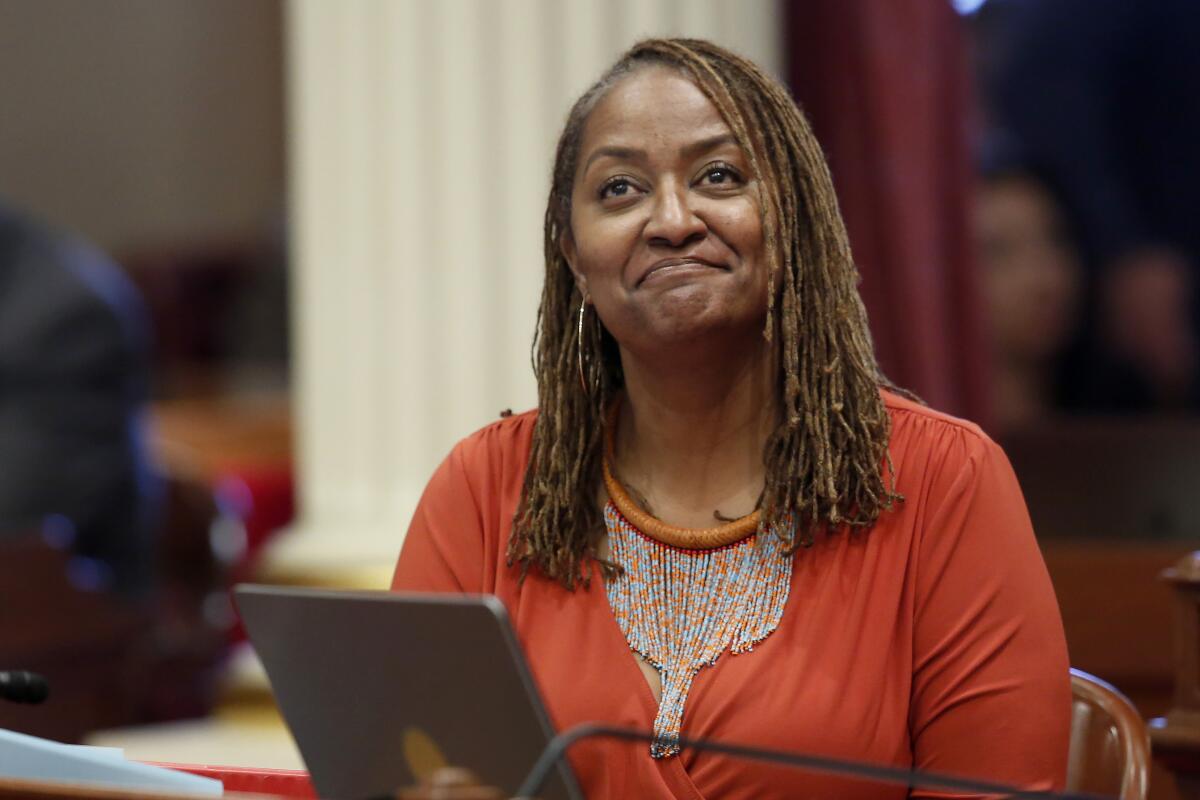Editorial: L.A. County supervisors, don’t sweep reform discussion under the rug

- Share via
The Los Angeles County Board of Supervisors moves in mysterious ways, and that’s rarely a good thing.
It’s unlike, say, the state Assembly or Senate, where most draft legislation is vetted in a series of committee hearings over a period of many weeks and analyzed by an independent office before finally coming to a vote. Nor is it like the L.A. City Council, which also has committees, a staff of analysts and usually a multi-week process to move something to the mayor’s desk. In each of those bodies, there are few last-minute surprises. Members of the public may not like the proposed actions, but at least they can see them coming. So can every member of the Legislature or the council.
At the county, surprises are a biweekly event. Every Friday afternoon, supervisors can add items to a supplemental agenda — the notorious green sheet — that haven’t yet been seen by the other board members. Instead of independent analysis, each supervisor has only the weekend and Monday to consider the implications and seek expertise before casting their votes on Tuesday. The public is often left in the dark. Transparency and accountability suffer.
A meta example of that phenomenon came up this week with a motion by Supervisors Holly Mitchell and Lindsey Horvath calling for an independent study to examine improving the board process and to consider campaign and governance reforms, such as expanding the board.
No matter how you slice it up, five people cannot adequately represent the more than 10 million people of Los Angeles County.
The motion got support from members of the public, who spoke in favor of better processes, more transparency, better accountability.
But then the rest of the board rejected the motion without explanation or comment.
Mitchell later told the Times editorial board that the word “anger” was used, presumably by one or more of her colleagues, in reaction to the motion. She said they may have felt blindsided because they had no opportunity to study it or consider the policy implications.
It’s more than a little ironic that a proposal to ask consultants to recommend changes — such as committee review and independent analysis — to prevent the board and the public from being blindsided by policy motions was rejected because it left some on the board feeling blindsided.
Mitchell said she had spent two years speaking about the issue with her counterparts on other boards of supervisors and in other county governments.
“I didn’t come up with that in the shower overnight by myself,” she said.
But she said she couldn’t discuss it with the other L.A. County supervisors, apart from presenting it as a motion, without violating the law.
Los Angeles County supervisors seem to enjoy their low-tech world where the coronavirus emergency is an excuse to keep the public quiet.
Is that true? The state’s open meetings law for local governments — the Brown Act — is subject to some interpretation on that point. The law affects boards of supervisors in a particularly complex way because, unlike city councils, which are legislative bodies, supervisors make up the county’s executive as well as legislative branch. Committees whose hearings are open to the public, and independent analysis, make good sense for lawmakers, but aren’t necessarily conducive to quick and efficient action from executives.
Resolving this dilemma is complicated, but that’s just the point. Other counties have worked through these issues and come up with solutions that are right for them and their constituents. L.A. County should too.
Even if the defeated motion won’t come before the board ever again, the gist of it must. It is long past time to have a serious discussion about a more transparent process for getting motions before the board, and perhaps a method for vetting and improving proposals while keeping the public in the loop. And other essential improvements as well: An expanded board to represent the county’s 10 million people. An independent executive, whose work the board oversees but does not duplicate. Campaign finance reform and other possible improvements that may come to light only with a systematic analysis of this county, and a comparison with other counties.
The board can’t turn its back on the subject. The people of Los Angeles County correctly insist on transparent, accountable government, and if their Board of Supervisors won’t discuss it, they will find other ways to impose it.
More to Read
A cure for the common opinion
Get thought-provoking perspectives with our weekly newsletter.
You may occasionally receive promotional content from the Los Angeles Times.











